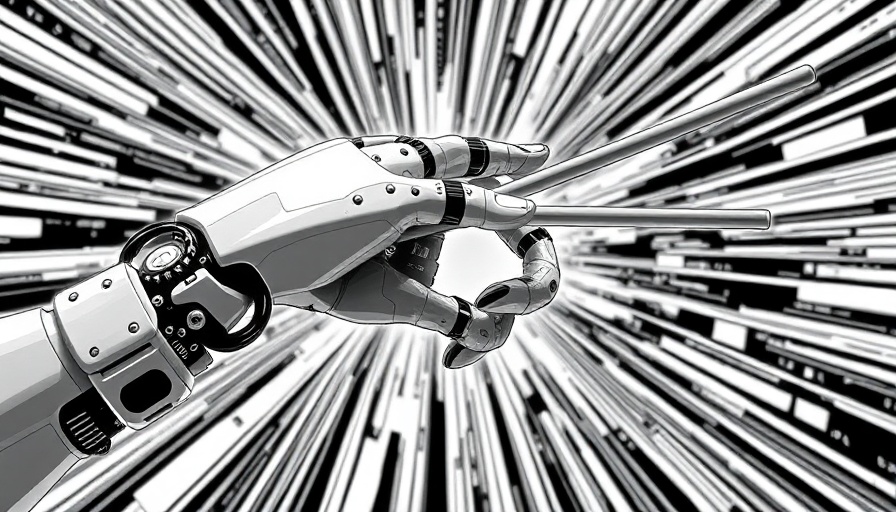
Discover Manus: The AI Gamechanger from China
In the ever-evolving realm of artificial intelligence, a new player has emerged that has the tech community abuzz. Introducing Manus, an AI multipurpose agent developed by the little-known Chinese startup Butterfly Effect. This system, described as a "general AI agent," is designed to autonomously handle complex tasks, setting itself apart from traditional AI models. Officially announced on March 5, 2025, Manus has quickly drawn comparisons to the earlier DeepSeek-R1, and industry experts are eager to understand its implications for the future of AI.
The Brains Behind Manus
Manus AI was birthed from the minds of experienced entrepreneurs led by founder Xiao Hong, a graduate of Wuhan's Huazhong University. Although the company boasts just a handful of employees, its vision of a fully functional AI capable of managing tasks traditionally deemed too complex for a machine has exploded in popularity. The name “Manus,” Latin for "hand," signifies its design intention—to lend a helping hand to users navigating the busy digital landscape.
How Does Manus Defy Convention?
While conversational chatbots often require a human touch to guide them through tasks, Manus claims to bridge the gap between conception and execution. Built on Anthropic’s Claude 3.5 Sonnet model, Manus not only generates ideas but autonomously conducts research, analysis, workflow automation, and code deployment. This independence allows users to simply assign tasks and walk away, freeing them to focus on higher-level concerns. Manus is currently in private beta, accessible only via invitation codes.
Benchmarking Against the Best
The performance metrics of Manus speak for themselves, leading many to question how it stacks up against established U.S. contenders like OpenAI. According to initial results, Manus has outperformed some of the best AI agents from American companies, showcasing its prowess at real-world tasks. Users have reported utilizing it effectively in conditions that challenge even seasoned professionals, further highlighting its potential in the competitive landscape.
Manus's Viral Success: Hype or Reality?
The launch of Manus sparked a wave of discussions across AI circles. Influencers, early adopters, and critics alike shared their experiences, sparking curiosity and skepticism. Rowan Cheung, a notable figure in the AI community, heralded Manus as a definitive shift in AI capabilities, declaring it could mark China’s resurgence in the AI race. However, the system's sudden scarcity of access prompted speculation about its commercial strategies. Some have likened it to a "hunger marketing" tactic aimed at inflating its visibility, raising questions about the transparency in its development process.
Addressing Concerns: Privacy and Processing Power
Despite its many accolades, Manus has not been without its critics. Concerns about privacy arise primarily due to its connection to a Chinese company, which leads many users to question how their data is handled and whether there’s potential governmental oversight. Furthermore, reports of server shortages have left interested parties sidelined from testing, creating a bottleneck that may affect Manus's long-term viability. Critiques from users highlight the need for greater transparency surrounding data protection and the technology's functionalities.
The Road Ahead: What’s Next for Manus?
As Manus continues to capture attention, the path forward will likely lead to debates about its genuine capabilities versus its public image. The AI landscape is rapidly evolving, demanding constant innovation from players like Manus. Critics have voiced that, while Manus may represent significant advancements, it operates heavily on existing technologies, diminishing its claim as an entirely proprietary creation. The focus will shift from its impressive launch to its ability to deliver on the promises made during its unveiling.
For AI enthusiasts, keeping an eye on Manus’s developments will be vitally important. As the excitement grows over its potential, it incites important conversations about the future of AI, raising essential questions about innovation, autonomy, and the ethics surrounding automated systems.
Interested readers should explore ongoing discussions about Manus and how it could reshape the landscape of AI and analytics. The evolution of AI tools like Manus offers not only technical advancement but also a window into the future intersections of technology, privacy, and society.
 Add Row
Add Row  Add
Add 




 Add Row
Add Row  Add
Add 

Write A Comment